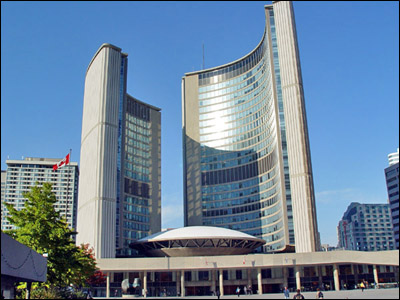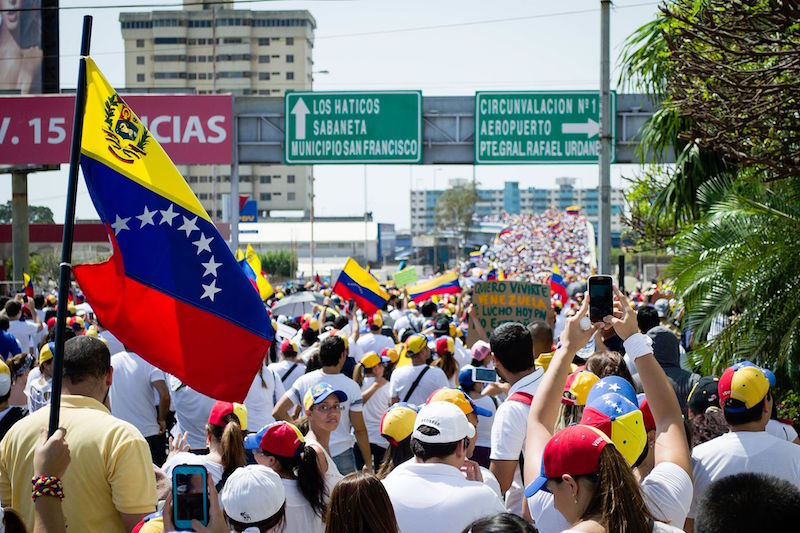In light of the growing concept of “global cities” around the world such as New York, Tokyo and London, last week Foreign Affairs’ Rodrigo Tavares published a timely article titled “Foreign Policy Goes Local- How Globalisation Made Sāo Paulo into a Diplomatic Power.” It raises a number of interesting points about the re-orientation of diplomacy towards cities, and away from national governments. Using the title city as a case study, the article argues that “paradiplomacy”, that is, diplomatic relations between cities, is highly effective in creating local responses to international problems. This article will also dive deeper into this issue, identifying the problems associated with sub-state diplomacy in a Canadian and international context.
“Paradiplomacy”
The idea of paradiplomacy refers to a parallel diplomacy, in which a concurrent dialogue between national governments and between cities or other subnational governments takes place. This concept largely grew to prominence in the 1970s, as strong relations began to develop with the interactions between state, cities, NGOs, multinational corporations and other non-state actors. As the Foreign Affairs article reports, these relations can include diplomatic ones between subnational actors and state actors, as with Sāo Paolo and the United Kingdom. Relationships between cities themselves are not a new concept however, and can be traced back to as early as the diplomatic relations between Greek polis.
[captionpix align=”left” theme=”elegant” width=”300″ imgsrc=”http://natoassociation.ca/wp-content/uploads/2013/11/canadianembassyinlondon.jpg” captiontext=”Canadian Embassy in London: Conventional diplomacy has traditionally focused on state to state relations.”]
Traditionally, diplomacy is concerned with the following three principles: that relations are peaceful, are practiced between commonly accepted sovereign states, and are based on mutual understanding that relations will be long term. This idea is largely unchanged, and traditional diplomacy is still exercised between cities practicing extra-state diplomacy. Over the last few decades however, the division of responsibilities between local, national and international governments have blurred. Global issues that are not confined to political boundaries such as climate change and global terrorism have grown significantly in the international system.
Benefits of City Diplomacy
Tavares’ article provides an excellent introduction to some of the benefits that diplomatic relations between cities can provide. The largest benefit of this type of interaction is the shared network of knowledge created through direct interaction between experienced professionals in tackling international issues locally. The most prominent example of this is climate change, as 75% of greenhouse gases are produced in cities. It is largely up to cities to mitigate their impacts as they can exercise direct control over those responsible in their jurisdiction. In this sense, it is city mayors, not the federal government, that have the most direct influence as the leaders of resolving transnational climate issues. Diplomacy between cities can enhance their individual efforts, offering shared policies, techniques, and lessons of what works and what doesn’t. The Cities for Climate Protection program is an example of these shared knowledge networks. This program has helped cities reduce some of their impacts on the environment through local initiatives that conform with their resources and needs.
Perhaps one of the best examples of existing city-to-city relations are the notion of “sister cities” or “twin cities”, which are co-operative arrangements often used to promote culture and tourism. An illustration of this is the twin city partnership of Lyon, France and Montreal, Québec to mostly promote cross-cultural exchanges. However, this concept can be further extended to include networks between cities that bolster economic development, education, health quality and infrastructure improvements. One example of this is the Ontario-Baden-Württemberg Exchange, which promotes residents of both these sub-state territories to travel and learn in an international context. Furthermore, multinational approaches to diplomacy can foster economic growth as seen in the relationship that Québec has developed independently with the United States. As of 2008, the value of US-Québec trade is approximately $78.5 billion. This figure represents over a fourth of total GDP in Québec. More specifically, this trade relationship can be demonstrated through three-quarters of Québec’s exports that are shipped to the US, while Québec enjoys special status as the US’s thirteenth largest market for their exports.
Problems Associated with Sub-State Diplomacy
There are still some important concerns associated with this model of diplomacy. One of these is that conceivably, an elitist network will emerge among wealthy cities as they focus sharing resources with one another, alienating less developed cities. However, these less developed cities still stand to gain from participation if special efforts are made by more developed cities to include them in their networks. This can be especially effective at working towards the Millennium Development Goals. The international community has much to gain by addressing specific issues such as universal primary education or improvement of maternal health in less developed cities, which would hopefully allow these cities to better contribute to global economic and social welfare.
[captionpix align=”right” theme=”elegant” width=”300″ imgsrc=”http://natoassociation.ca/wp-content/uploads/2013/11/6-curitiba2.jpg” captiontext=”Curitiba is world-renowned for its efficient transportation system after it went through a massive overhaul in 1974.”]
Another issue is that parallel diplomacy may cause tensions to emerge between sub-state actors and state actors if the policy or politics of the governments differ. A city which may advocate a certain policy direction may find itself at odds with its federal government. A municipal government championing one policy and their government supporting another may cause difficulties in diplomats reconciling the issue. Indeed, some states may balk at the idea of their cities be independently represented internationally. This is especially true of more closed-society states that exercise strong authoritative control over their territories in a strong central government. The Ministry of Foreign Affairs in Brazil put this issue to rest by formally supporting Sāo Paulo’s plans in a 2012 government decree. Finally, there is also a concern of a relative lack of checks and balances compared to the federal level of governments. Often there is no opposition critic in the municipal level, and this may cause an issue in ensuring the maximum protection of the welfare of citizens when tackling large scale issues with other cities.
A Consulate of Toronto?
Toronto would have a lot to gain by establishing formal diplomatic relations with other cities. Although it is not one of the world’s largest cities in terms of population, it is considered to be the fourth most liveable city in the world and ranked tenth in terms of international cities’ economic competitiveness. As one of Canada’s fastest growing cities, it has a lot to learn from larger metropolises in terms of developing infrastructure in response to the growing population. Bilateral discussions with New York or London could change how municipal leaders think about urban planning as well as adopt some of the innovative responses from Curitiba, one of the world’s most efficient cities in terms of transportation. While the concerns about sub-state diplomacy should be kept in mind, it would be largely to the benefit of Toronto and Canada to follow a similar model undertaken by Sāo Paulo. Diplomatic relations between cities are not just economically beneficial as seen in Sāo Paolo or Québec, but are largely vital in ensuring progressive advances in the issues outlined above.




